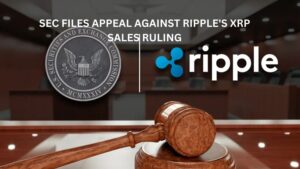Key Takeaways
- The framework will outline legal structures that DAOs must follow, addressing key concerns including tax obligations
- A major feature of the initiative is the ability for DAOs to register remotely, without the need for a physical presence in the UAE.
The Ras Al Khaimah Digital Assets Oasis (RAK DAO), a specialized free economic zone in the United Arab Emirates, is set to introduce a legal framework for decentralized autonomous organizations (DAOs). The new regulatory guidelines will be unveiled at the DAO Legal Clinic on October 25.
The framework will outline legal structures that DAOs must follow, addressing key concerns which includes property ownership, tax obligations and governance requirements. It will also enable DAOs to own both digital and physical assets, offer legal protection from personal liability for founders and members, and allow these organizations to enter into legally binding contracts. The aim is to make it easier for DAOs to operate while providing a stable legal foundation.
As per news reports, a major feature of the initiative is the ability for DAOs to register remotely, without the need for a physical presence in the UAE. This will attract international participants to engage with the UAE’s fast-growing digital assets sector. Crypto lawyer Irina Heaver noted that the new framework will further position the UAE as a global leader in blockchain and digital asset innovation, enhancing its appeal to entrepreneurs and developers worldwide.
The move also sets the UAE apart from other countries like Switzerland, which, while allowing DAOs, has not introduced specific legal guidelines. RAK DAO’s initiative offers a more structured approach to governing decentralized organizations, helping to ensure legal compliance while fostering growth in the blockchain industry.
Dubai has been trying to position itself as a crypto hub, in recent years. Earlier this month, The Central Bank of the United Arab Emirates (CBUAE) gave in-principle approval for an AED stablecoin.
The Emirate has granted full regulatory approvals to leading cryptocurrency exchanges such as Binance, OKX, and Crypto.com. Last month, Dubai’s Court of First Instance made a ruling, recognising payment of salaries in crypto under employment contracts. Recently, M2 has opened a new system that allows residents to directly convert dirhams into Bitcoin and Ether.










